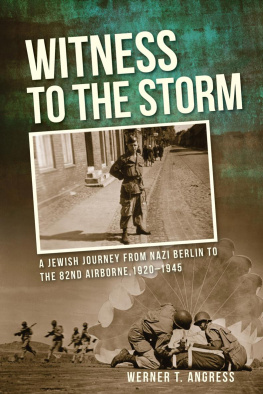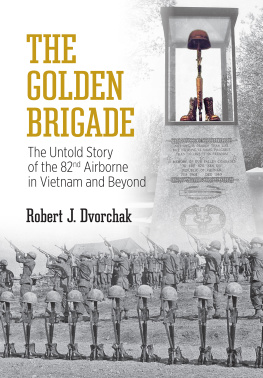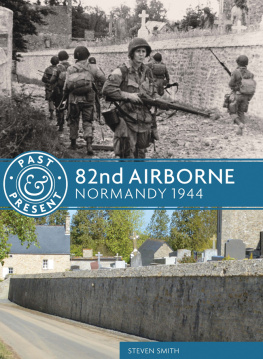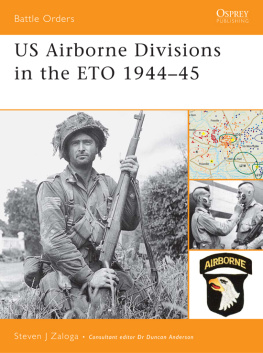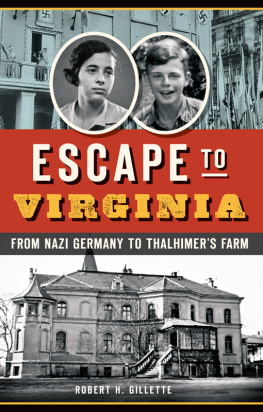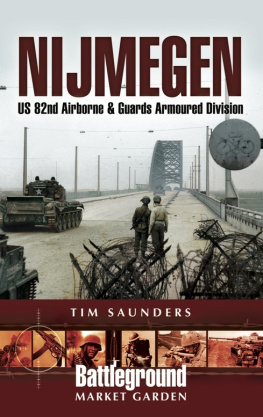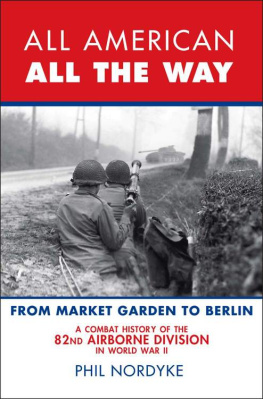Praise for Previous Edition
This autobiography deserves to be placed next to Victor Klemperers I Will Bear Witness as a vivid account of the Nazi years. In plain and lucid language Angress recounts the gradual disillusionment of a Jewish schoolboy in Berlin after 1933. No less strikingly portrayed is his experience as an American soldier in the Second World War, parachuted into France on D-Day, wounded in battle, and shocked at the liberation of concentration camps. Readers, whether professional historians or not, will find in these pages the unforgettable depiction of a turbulent life.
Allan Mitchell,
Professor Emeritus of History
University of California, San Diego.
This is an extraordinary memoir, self-ironic and humane, dealing with one of the darkest chapters of twentieth century history. A Jewish historian of Germany recounts his privileged childhood in Berlin, his flight to exile in the United States, and his experiences as a soldier in the liberation of Europe. In a lively style, these recollections recreate a lost Jewish-German world, destroyed by Nazi racism, while reaffirming a deep commitment to rational inquiry and personal forgiveness.
Konrad H. Jarausch,
Lurcy Professor of European Civilization in the Department of History, University of North Carolina, Chapel Hill.
WITNESS TO THE STORM
Witness to the Storm
A JEWISH JOURNEY
FROM NAZI BERLIN TO
THE 82ND AIRBORNE,
19201945
Werner T. Angress
INDIANA UNIVERSITY PRESS
This book is a publication of
Indiana University Press
Office of Scholarly Publishing
Herman B Wells Library 350
1320 East 10th Street
Bloomington, Indiana 47405 USA
iupress.indiana.edu
Copyright 2012 by Miriam Angress,
Percy Angress, Nadine Angress, and Dan Angress
Indiana University Press edition 2019
All rights reserved
No part of this book may be reproduced or utilized in any form or by any means, electronic or mechanical, including photocopying and recording, or by any information storage and retrieval system, without permission in writing from the publisher.
The paper used in this publication meets the minimum requirements of the American National Standard for Information SciencesPermanence of Paper for Printed Library Materials, ANSI Z39.48-1992.
Manufactured in the United States of America
LCCN: 2012908730
ISBN 978-0-253-03912-5 (hardcover)
ISBN 978-0-253-03913-2 (paperback)
ISBN 978-0-253-03914-9 (ebook)
1 2 3 4 5 24 23 22 21 20 19
To my deceased parents,
Ernst and Henny Angress,
dedicated in loving memory
Contents
Acknowledgments
I would probably never have written these childhood memories if my four children (especially), my two brothers, as well as several friends had not repeatedly asked for them. I have confined myself to the first, formative twenty-five years of my life because I cannot imagine that many readers are interested in my academic career. But I grew up during the years of the Weimar Republic and the twelve years that the Thousand Year [German] Empire lasted, which included the war years from 1939 to 1945. It seemed important to me to communicate my experiences as a Zeitzeuge, or contemporary witness, to this period in history.
A number of friends were kind enough to help me while I worked on the manuscript, and then later, after I had a draft, to make corrections and suggest changes. So I would first like to thank Trude Maurer for reading section by section and carefully correcting the manuscript. Helpful suggestions came from a number of friends: Gisela Bittner, Ernst Cramer, Silvia Diekmann, Dagmar von Doetinchem, Astrid Eckert, Elma Gaasbeek, Christine Granger, Konrad H. Jarausch, Gabriele Krebs, Gabriele Jonelat-Krschet, Cornelia R. Levine, Michael Maurer, Rita Rhr, Katherine Rrup, Andrea Schultz, Angelika Tramitz and Werner Warmbrunn. Also, Claudia Angress, Wolfgang Benz, Andrea Brill, Belinda Cooper, Angelika Kipp and Fred and Sally Tubach took an active interest. Finally, last but not least, I want to thank the Kampe family in particular for their efforts: Angelika and Jonas for their comments and Norbert for his assistance in getting the manuscript ready for publication.
Werner T. Angress
Berlin, 2005
Foreword
This memoir was originally published in German in 2005.* Tom Angress always planned to make an English version available to his relatives and friends, and he worked on a translation during the last years of his life. After his death in 2010, our family decided to publish the English edition in the United States, and we collaborated on its preparation. Tom would have liked how the family worked together on this project, either directly, by contributing time and funds, or by clearing away other work connected with his estate so that a group could focus on the book.
A few of the ways family and other loved ones participated: by organizing the historical photographs and appendices (including the diary Tom kept during his jump on Normandy and brief stay in a German P.O.W. camp); by going through the copyedits to check that Toms distinctive voice had not been lost; by asking Tom, before his death, and others afterwards, to answer questions raised by the copyeditor (because none of us is familiar with paratrooper protocol, or knows what it was like to be part of a Jewish youth group under the Nazis); by brainstorming about a title and subtitle for the English edition; and by translating a few pieces (frontmatter, mostly), that Tom hadnt tackled himself.
We did this out of love, but also because we believe that this volume will be interesting and valuable to readers who never knew him.
We thank Helen Robinson for her thoughtful and elegant design and Kay Robin Alexander for her deep generosity (for proofing the text, and going far beyond her initial pledge to just read through the manuscript). We are grateful to Alex Martin for beautifully copyediting this edition and for suggesting that the family add a foreword. Alex said that he developed affection for Tom, whom he never met or spoke to, through working on this text. He started referring to Tom as the Zeitzeuge (contemporary witness), which is how Tom described himself in the German acknowledgments. That is, really, the point of this book: to share what he witnessed and the part he played.
Tom Angresss children
United States, 2012
*immer etwas abseits: Jugenderinnerungen eines jdischen Berliners 19201945 (Berlin: Edition Hentrich).
Personal Notes
One of the gifts of my fathers memoirs was the portrait it provided me of a grandfather Id never met. My fathers increasing closeness to his father as he grew older mirrored my own maturing relationship to my father over the years. His absorption of Ernst Angress beloved Prussian valuesBe honest and straightforward, and behave toward others in a way your parents would be proud ofwas reflected in my adoption of those same values, two generations removed. My father lost the companionship of his father at seventeen. I was luckier; I enjoyed his company for over half a century.
Percy Angress (one of Toms sons)
Once, when I visited my father in Germany, he took me to a Berlin public library. We both loved Wim Wenders movie,

